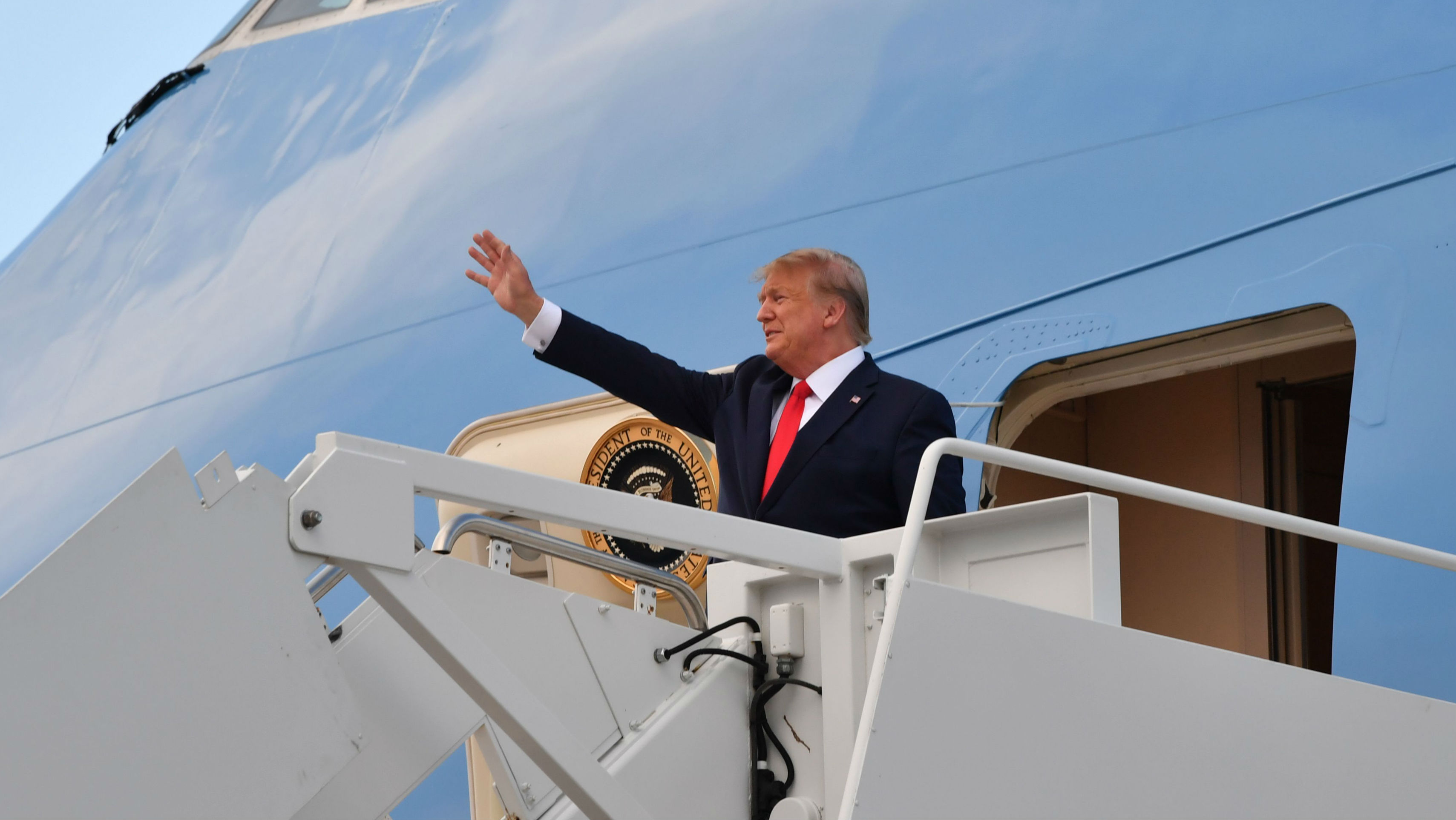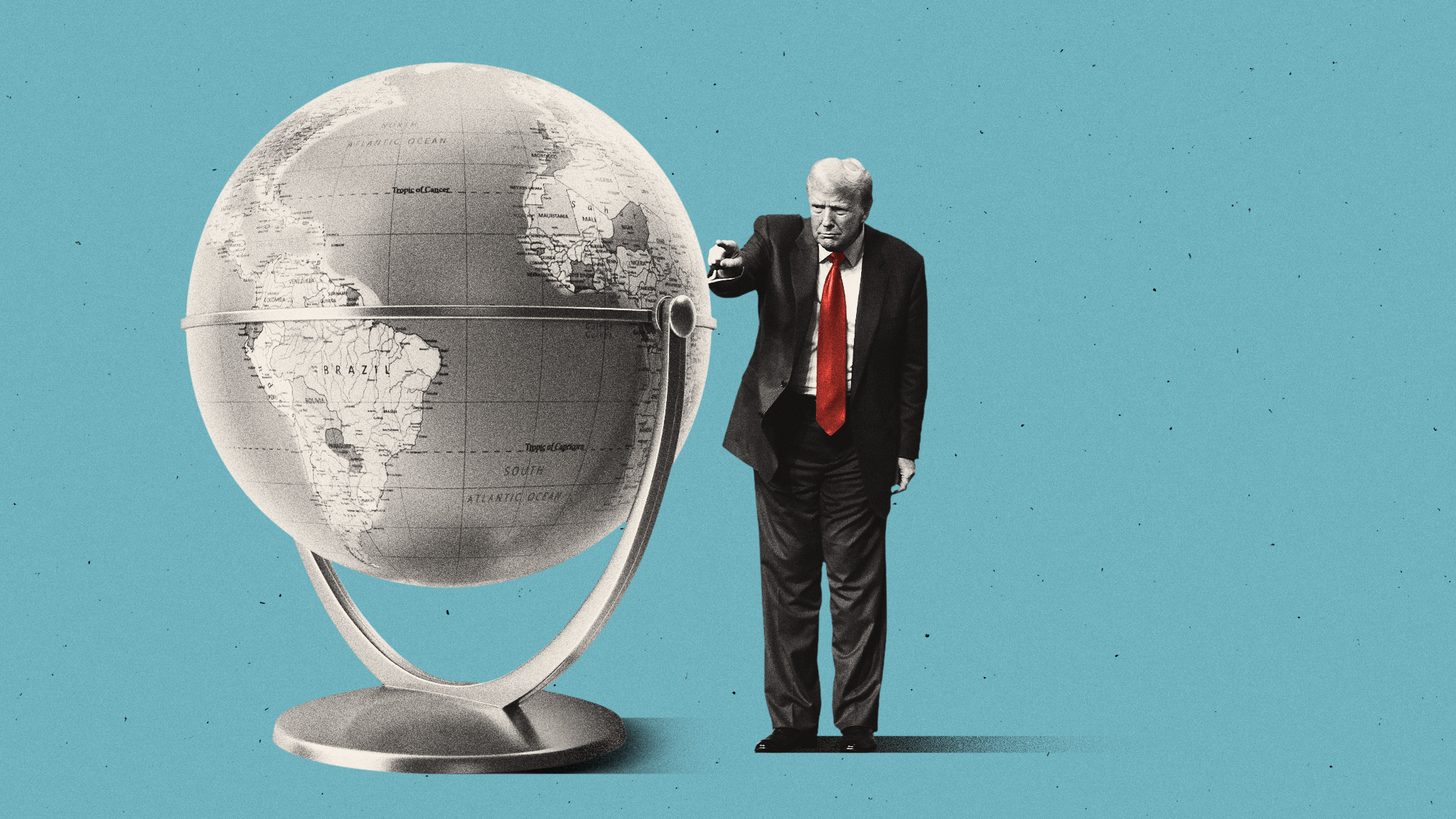What is the Open Skies Treaty and why is it at risk?
Trump administration set on leaving controversial agreement with Russia

A free daily email with the biggest news stories of the day – and the best features from TheWeek.com
You are now subscribed
Your newsletter sign-up was successful
US officials are reportedly in the process of withdrawing from a 28-year-old treaty aimed at preventing accidental war with Russia.
Donald Trump has been keen to pull out of the Open Skies Treaty (OST), which allows Moscow and Washington to send reconnaissance flights over one another’s territory, for several months.
Two sources close to the administration told The Guardian that Defence Secretary Mark Esper and Secretary of State Mike Pompeo are now expected to make an announcement soon.
The Week
Escape your echo chamber. Get the facts behind the news, plus analysis from multiple perspectives.

Sign up for The Week's Free Newsletters
From our morning news briefing to a weekly Good News Newsletter, get the best of The Week delivered directly to your inbox.
From our morning news briefing to a weekly Good News Newsletter, get the best of The Week delivered directly to your inbox.
“A statement of intent is expected soon, with a formal notification of withdrawal issued a few months later, possibly at the end of the fiscal year in September,” says the newspaper. “The US would cease to be a party to the treaty six months after that, so if a new president were elected in November, the decision could be reversed before taking effect.”
To some experts, such as Stephen Pifer at the Brookings Institution, withdrawing “would constitute another mistake by an administration that increasingly seems set against arms control”.
But with Russia already abandoning a number of key facets of the treaty in recent years, is it really worth maintaining such an agreement?
What is it?
A free daily email with the biggest news stories of the day – and the best features from TheWeek.com
The treaty is aimed at boosting transparency of military activities among its member states. Signatories are allowed to “conduct short-notice, unarmed, reconnaissance flights over the others’ entire territories to collect data on military forces and activities”, explains the US-based Arms Control Association.
According to the US State Department, the treaty is “designed to enhance mutual understanding and confidence by giving all participants, regardless of size, a direct role in gathering information through aerial imaging on military forces and activities of concern to them”.
The US Defense Threat Reduction Agency told CNN that the treaty is used to help verify arms control agreements.
Over the past 16 years, it has enabled nearly 200 flights by the US over Russia and more than 70 flights by Russia over the US.
Why does Trump want to leave?
Wired says the reported withdrawal plan is part of the administration’s wider efforts to “unwind many of the multilateral agreements, institutions, and treaties that have helped govern the world and keep peace” since the Second World War.
Last year, Trump withdrew from the 1987 Intermediate-Range Nuclear Forces Treaty, which limited ballistic and cruise missiles, arguing that Moscow no longer abided by the treaty’s terms.
Republicans and military leaders have also protested for some years about the Open Skies treaty, claiming that Russia is not cooperating and is deliberately trying to dodge the spirit of the agreement.
What are the possible consequences?
Some analysts fear that quitting the treaty would hamper the US military’s ability to conduct aerial surveillance of Russia and other member countries. Other experts believe the withdrawal could herald a new arms race with Moscow.
–––––––––––––––––––––––––––––––For a round-up of the most important stories from around the world - and a concise, refreshing and balanced take on the week’s news agenda - try The Week magazine. Get your first six issues for £6–––––––––––––––––––––––––––––––
Democrats are warning that the planned move could prove hugely beneficial to Moscow, reports NBC News.
“Pulling out of the Open Skies Treaty, an important multilateral arms control agreement, would be yet another gift from the Trump administration to Putin,” said the Democrats on the House and Senate foreign relations and armed services committees, in a letter to the US secretaries of state and defence, last October.
That view is shared by Ben Rhodes, the former deputy national security advisor to Barack Obama, who tweeted: “Sometimes the only way to explain/predict Trump’s foreign policy is to think ‘what would Putin want the US to do?’”
There are also fears that a withdrawal from the treaty would undermine confidence in Washington’s commitment to Ukraine. “The Open Skies Treaty is a critical element of US and European security, and a decision to withdraw would be another blow to regional stability as well as Ukrainian security,” warn the Democrat committee members in their letter.
-
 How to Get to Heaven from Belfast: a ‘highly entertaining ride’
How to Get to Heaven from Belfast: a ‘highly entertaining ride’The Week Recommends Mystery-comedy from the creator of Derry Girls should be ‘your new binge-watch’
-
 The 8 best TV shows of the 1960s
The 8 best TV shows of the 1960sThe standout shows of this decade take viewers from outer space to the Wild West
-
 Microdramas are booming
Microdramas are boomingUnder the radar Scroll to watch a whole movie
-
 Munich Security Conference: a showdown between Europe and Trump?
Munich Security Conference: a showdown between Europe and Trump?Today’s Big Question Report suggests European leaders believe they can no longer rely on the US for military support – but decoupling is easier said than done
-
 New START: the final US-Russia nuclear treaty about to expire
New START: the final US-Russia nuclear treaty about to expireThe Explainer The last agreement between Washington and Moscow expires within weeks
-
 Would Europe defend Greenland from US aggression?
Would Europe defend Greenland from US aggression?Today’s Big Question ‘Mildness’ of EU pushback against Trump provocation ‘illustrates the bind Europe finds itself in’
-
 Greenland, Colombia, Cuba: where is Donald Trump eyeing up next?
Greenland, Colombia, Cuba: where is Donald Trump eyeing up next?Today's Big Question Ousting Venezuela’s leader could embolden the US administration to exert its dominance elsewhere
-
 Did Trump just end the US-Europe alliance?
Did Trump just end the US-Europe alliance?Today's Big Question New US national security policy drops ‘grenade’ on Europe and should serve as ‘the mother of all wake-up calls’
-
 Trump peace deal: an offer Zelenskyy can’t refuse?
Trump peace deal: an offer Zelenskyy can’t refuse?Today’s Big Question ‘Unpalatable’ US plan may strengthen embattled Ukrainian president at home
-
 Vladimir Putin’s ‘nuclear tsunami’ missile
Vladimir Putin’s ‘nuclear tsunami’ missileThe Explainer Russian president has boasted that there is no way to intercept the new weapon
-
 Russia’s war games and the threat to Nato
Russia’s war games and the threat to NatoIn depth Incursion into Poland and Zapad 2025 exercises seen as a test for Europe